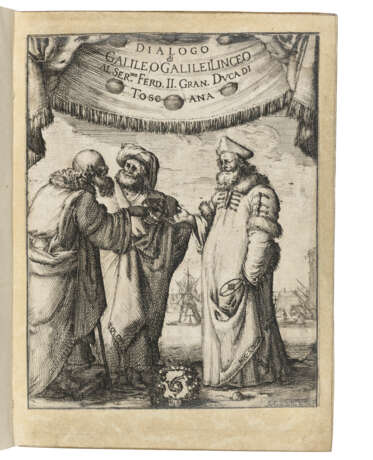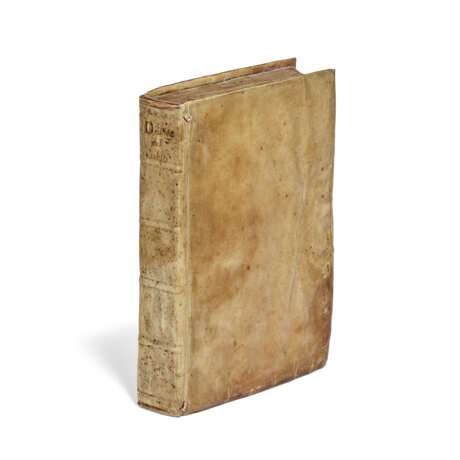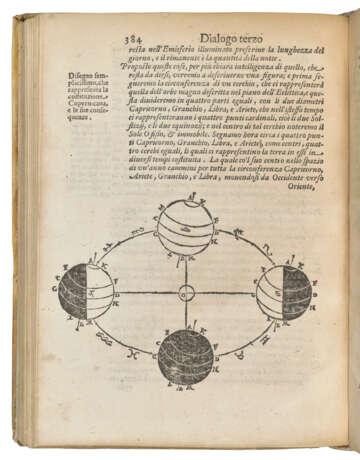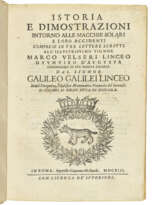ID 1349768
Lot 123 | GALILEI, Galileo (1564-1642)
Estimate value
£ 40 000 – 60 000
Dialogo ... sopre i due massimi sistemi del mondo Tolemaico, e Copernicano. Florence: Giovanni Battista Landini, 1632
First edition of Galilei's famous defense of Copernican heliocentrism; ‘more than any other work, [it] made the heliocentric system a commonplace’ (PMM). In 1624, eight years after being forbidden to promulgate heliocentrism by the previous pope, Galileo was granted permission to write on the subject by the new Pope Urban VIII, his friend and patron for more than a decade—on the condition that Aristotelian and Copernican theories were put forward equally and impartially. To this end, Galileo wrote his work as a dialogue between Salviati, a Copernican, and Simplicio (‘Simpleton’), an upholder of the geocentric Ptolemaic and Aristotelian orthodoxy. Far from impartial, the work ‘is a masterly polemic for the new science. It displays all the great discoveries in the heavens which the ancients had ignored’ (PMM). Galileo subsequently lost the support of Urban VIII and was called to Rome for trial by the Inquisition. His sentence of life imprisonment was commuted to permanent house arrest and the Dialogo was placed on the Index, where it remained until 1832. Carli and Favaro, p. 28; Cinti 89; Dibner, Heralds 8; Grolier/Horblit 18c; Norman 858; PMM 128.
Quarto (212 x 152mm). Without final blank, with the errata leaf, pasted-on correction slip on p.92, and manuscript addition of letter H to diagram on p.192. Engraved frontispiece by Stefano della Bella, woodcut Landini device on title, 31 woodcut text diagrams and illustrations, woodcut ornamental initials, type-ornament head- and tailpieces and factotum initials (frontis. mounted, discreet repairs in title touching a few letters, pale browning, small wormtrack in quires Cc-Dd lightly touching some shoulder notes). Later flexible vellum; modern citron morocco solander box. Provenance: N.G. (circular stamp on title).
| Artist: | Galileo Galilei (1564 - 1642) |
|---|---|
| Place of origin: | Italy, Europe |
| Auction house category: | Books and manuscripts, Printed books |
| Artist: | Galileo Galilei (1564 - 1642) |
|---|---|
| Place of origin: | Italy, Europe |
| Auction house category: | Books and manuscripts, Printed books |
| Address of auction |
CHRISTIE'S 8 King Street, St. James's SW1Y 6QT London United Kingdom | |
|---|---|---|
| Preview |
| |
| Phone | +44 (0)20 7839 9060 | |
| Buyer Premium | see on Website | |
| Conditions of purchase | Conditions of purchase |






![[GALILEO GALILEI (1564-1642) and Girolamo SPINELLI (c.1580-1647)]](/assets/image/picture_4734998/81ecb/b78ba02793ea9f7c89bc2421c803edfc1752012000jpg__fix_162_205.jpeg)



![[GALILEI, Galileo (1564-1642)] — CASTELLI, Benedetto](/assets/image/picture_2279448/bf47d/0c6646dd107660ed4adadc32f328199d1657663200jpg__fix_162_205.jpeg)


